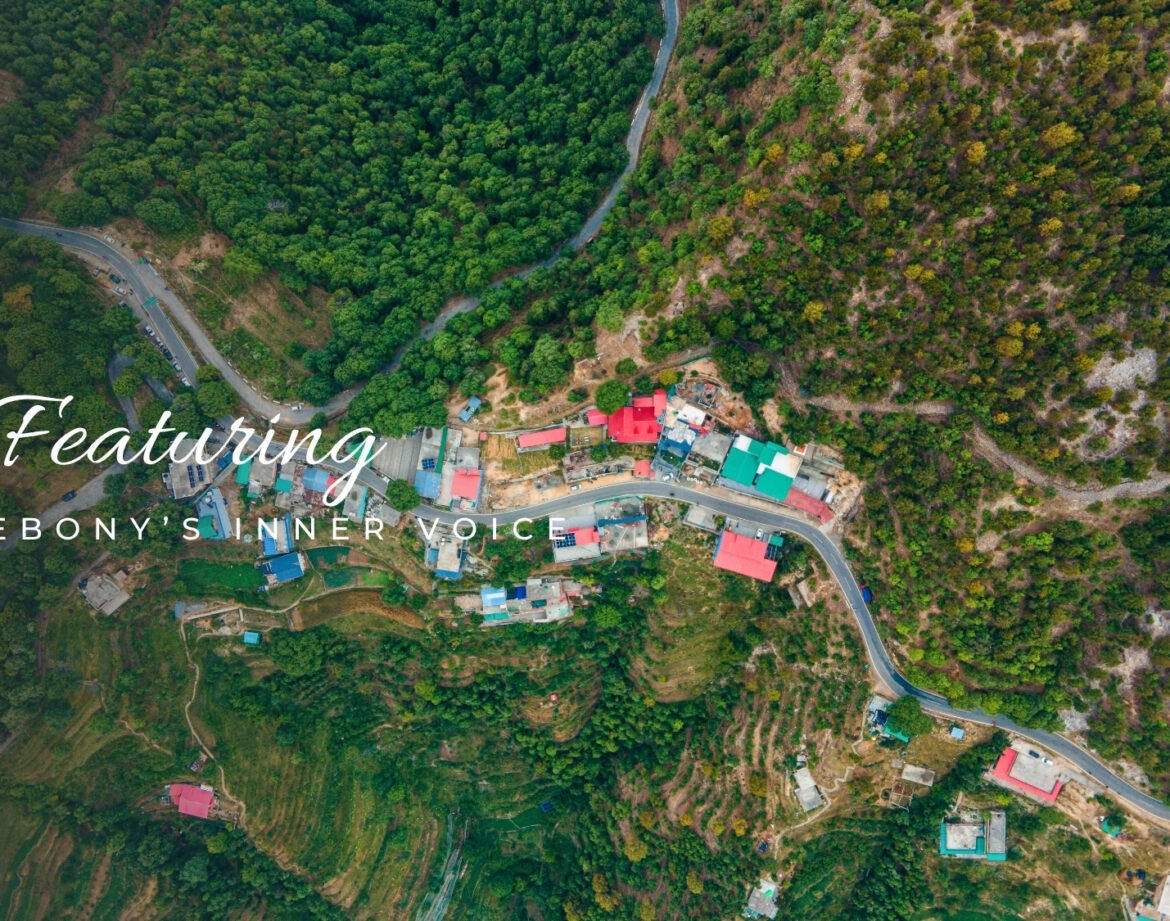Travel Green: 8 Data-Backed Reasons Why Eco-Stays Are the Future of Indian Tourism
As travel bounces back in India, one trend is rising fast and steadily: eco-friendly tourism. More than just a buzzword, sustainable stays are now backed by data, demanded by younger travelers, and supported by real-world climate needs. And with Indian tourism projected to reach $512 billion by 2029, choosing greener hospitality options isn’t just ethical, it’s essential. Platforms like EbonyStays are leading this change, offering experiences that blend comfort, culture, and care for the planet.
Why the Shift Towards Eco-Stays Matters
India faces a unique crossroads. On one hand, we’re the home of diverse landscapes, mountains, beaches, forests, and deserts. On the other hand, we’re also witnessing serious climate shifts, rising pollution, and overtourism in popular spots. In this setting, eco-stays are no longer a luxury, they’re a necessity. Unlike conventional hotels, eco-stays reduce environmental impact, support local economies, and offer authentic experiences.
Let’s explore the eight strongest, data-backed reasons why eco-stays are becoming the future of Indian tourism, and why brands like EbonyStays are earning attention among mindful travellers.
1. Eco-Stays Reduce Carbon Footprints, Significantly
A typical hotel guest generates about 15 to 30 kg of CO₂ emissions per night, from air conditioning, water heating, electricity use, food wastage, and laundry. In contrast, eco-stays that use solar energy, water harvesting, and local materials can cut that footprint by over 60%, according to a 2023 study published by Greenview.
EbonyStays, for example, integrates passive cooling, energy-efficient lighting, and low-waste design in many of its properties. For guests, this means you’re not just relaxing, you’re actively contributing to a greener planet with every night you stay.

2. Gen Z and Millennials Are Driving the Demand
Over 73% of Gen Z and millennial travellers in India say they prefer eco-conscious travel options, as per Booking.com’s Sustainable Travel Report 2024. They don’t just want to see pretty places, they want their travel choices to reflect their values.
This generation asks the right questions:
- Is this place harming the environment?
- Is the community benefiting from my visit?
- Can I travel without leaving a trace?
That’s where platforms like EbonyStays step in, curating properties that meet not just design expectations but ethical ones too. Their selection often includes recycled architecture, organic local food, and zero-plastic policies, making them highly appealing to young Indian explorers.

3. Eco-Stays Boost Local Communities
A huge chunk of India’s hospitality industry is still concentrated in urban pockets or touristy zones. Eco-stays, however, bring tourism into rural and semi-rural spaces, which helps distribute income more evenly.
Research from the Centre for Responsible Tourism shows that for every ₹100 spent at a locally-owned eco-stay, ₹65 stays within the local community, as opposed to just ₹10 in chain hotels. That’s jobs for villagers, fair wages for artisans, and opportunities for local farmers.
Many EbonyStays villas and cottages are located in less-commercial areas, partnering directly with local families for supplies, maintenance, and cultural experiences. This ensures guests get a slice of real India, not just a polished brochure version.

4. Government Policies Are Getting Stricter on Sustainability
Tourism policies in India are catching up. The Ministry of Tourism now offers incentives for hotels following green practices, including certification under the Sustainable Tourism Criteria for India (STCI).
In states like Kerala, Himachal Pradesh, and Sikkim, new regulations limit water usage, restrict plastic, and encourage energy conservation in hospitality. Eco-stays that are already following these norms have a clear edge, both in terms of legality and long-term viability.
EbonyStays follows eco-certification protocols and works closely with local governing bodies to align with sustainability goals, making them compliant and future-ready.
5. Conscious Travel Is Better for Your Mental Health
Unlike typical hotels, eco-stays are designed to blend into nature, not block it out. You’ll often find yourself waking up to birdsong instead of car horns, and spending your evening under starry skies rather than fluorescent lights.
A 2022 study by the Indian Council of Medical Research found that travellers who stayed in nature-integrated accommodations reported 40% lower stress levels and better sleep than those in city hotels. Add to that fresh local meals and zero digital clutter, and you get a vacation that heals instead of hurrying you.
EbonyStays properties like those nestled in Ooty, Uttarakhand, or Maharashtra’s Sahyadris are designed to create this calm. They’re places where you don’t escape nature, you return to it.

6. Eco-Stays Help Fight Overtourism
From Manali to Goa, India is grappling with overtourism. Popular places suffer from trash overload, water shortages, and traffic congestion. Eco-stays decentralize tourism, promoting less-traveled paths and spreading footfall across hidden gems.
A report by the World Travel & Tourism Council (WTTC) notes that eco-stays tend to attract longer stays, lower guest turnover, and more respectful tourism behaviour. Guests in these properties are more mindful about noise, waste, and cultural etiquette.
EbonyStays promotes micro-tourism, listing boutique properties in tier-2 or tier-3 towns, tribal belts, and offbeat villages. This not only reduces crowd pressure on hotspots but also puts unexplored destinations on the map.

7. Sustainable Tourism Offers Higher Guest Satisfaction
Today’s traveller cares about experiences, not just rooms. And the quality of a stay isn’t measured by thread count alone; it’s the feeling you take back. Guests at eco-stays consistently rate their experiences higher on parameters like authenticity, learning, and emotional connection.
In a recent Airbnb survey, eco-conscious guests were 52% more likely to recommend their stay to others. Why? Because they felt like their trip meant something.
EbonyStays taps into this emotional satisfaction by offering hands-on activities, farm walks, local cooking lessons, yoga retreats, and village tours that go beyond sightseeing. They let travellers participate, not just consume.

8. It Makes Business Sense Too
Let’s talk money. A 2023 McKinsey report confirmed that sustainable hospitality has lower operating costs in the long run due to energy savings, waste reduction, and local sourcing. Moreover, green properties enjoy higher occupancy rates and guest loyalty.
In India, the average eco-stay sees repeat bookings 30% higher than standard hotels in the same category.
EbonyStays understands this shift. By investing in smart water management, solar tech, and biodegradable materials, they’re not only reducing operational costs, but they’re also building long-term trust with conscious customers.

Conclusion: The Future of Indian Travel Is Rooted in Responsibility
The numbers are clear, and so is the path forward. Eco-stays aren’t a trend, they’re a transformation. As more Indians choose ethical travel, eco-friendly hospitality will define where and how we vacation. With a rising young traveller base, stricter green laws, and deeper climate concerns, platforms like EbonyStays are showing how sustainability and style can go hand in hand.
So the next time you plan a getaway, don’t just look at the view, look at the values behind it. Choose to travel green. Choose to travel smart. Choose eco-stays.
FAQs on Eco-Stays and Sustainable Tourism in India
1. What makes a stay an “eco-stay”?
An eco-stay uses environmentally responsible practices, like solar power, rainwater harvesting, plastic-free policies, and local sourcing. It also supports local communities and reduces waste and emissions. Platforms like EbonyStays carefully select such properties to ensure true sustainability.
2. Are eco-stays more expensive than regular hotels?
Not necessarily. Many eco-stays are price-competitive, especially when you factor in home-cooked meals, nature activities, and longer stays. Also, eco-stays offer better long-term value in terms of comfort, peace, and emotional satisfaction.
3. How can I be sure a stay is truly eco-friendly?
Look for certifications (like IGBC, GRIHA, or STCI), check if the property lists sustainable practices clearly, and read guest reviews. EbonyStays also performs on-ground audits and works only with hosts who meet specific green criteria.
4. Why are younger travellers more interested in eco-tourism?
Gen Z and millennials are more aware of climate issues and want their travel choices to reflect personal ethics. They prefer stays that offer cultural authenticity, minimal environmental harm, and community connection, all core values in eco-tourism.
5. Is eco-tourism suitable for families and senior citizens?
Absolutely. Eco-stays provide quiet, nature-rich settings perfect for relaxation. Many properties under EbonyStays are family-friendly, offering safety, comfort, and activities for all age groups, from forest trails to organic cooking sessions.

